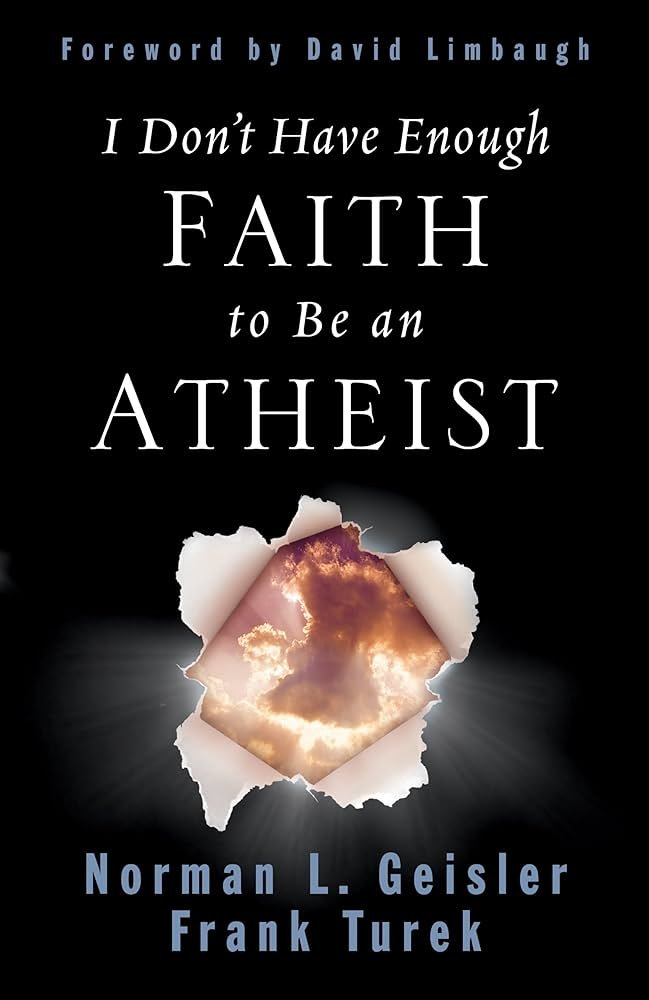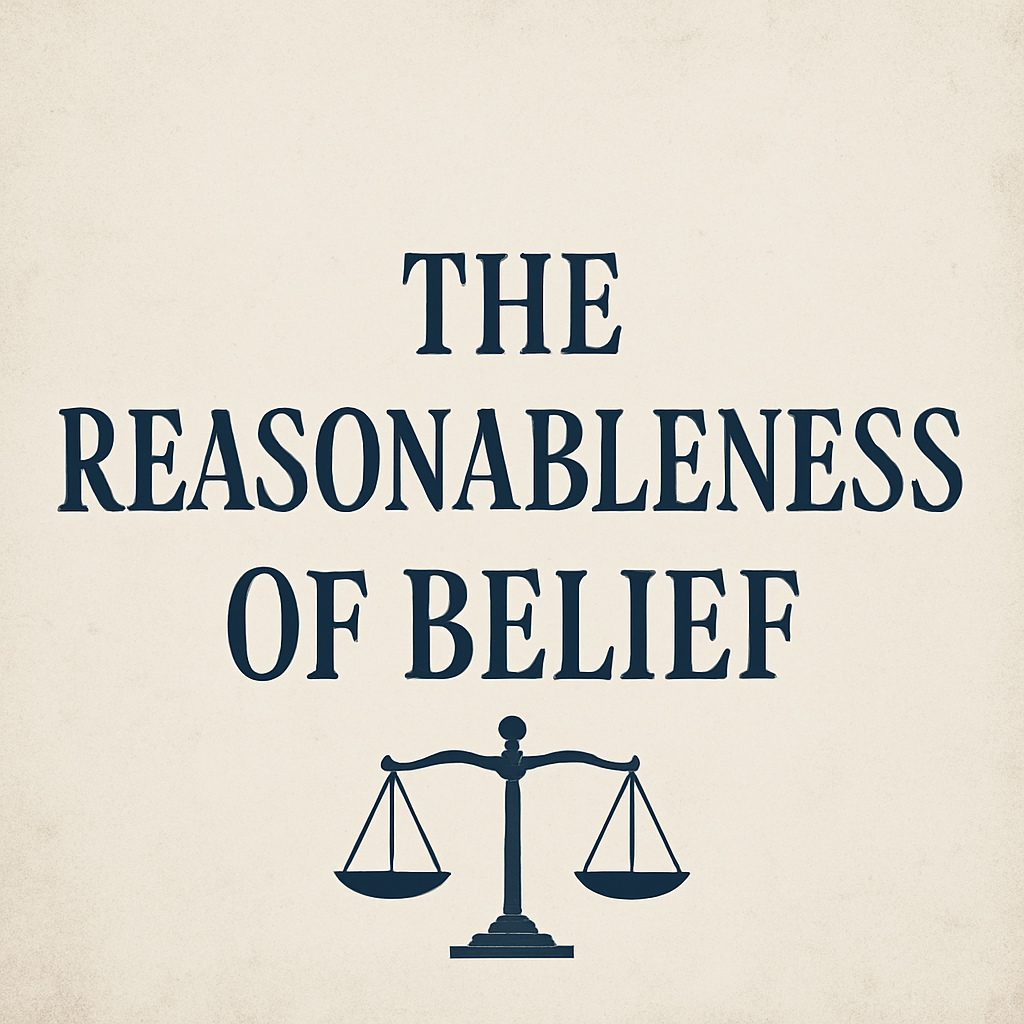I Don’t Have Enough Faith to Be an Atheist is an apologetics classic that argues belief in Christianity is not only reasonable but the most rational worldview when compared to atheism or other belief systems. Norman Geisler and Frank Turek frame their case around the idea that everyone—atheist, skeptic, or Christian—lives by some degree of “faith,” understood as trust placed in a worldview. They suggest atheism, with its requirement to explain existence, morality, and meaning without God, actually demands more blind faith than Christianity, which rests on evidence.

The book progresses through a logical “12-point” framework. It begins with the question of truth: is it knowable, and can opposing truth claims be tested? From there, the authors address the existence of God using cosmological, teleological, and moral arguments. They argue the universe had a beginning, design is evident in nature, and morality points beyond human opinion to a moral Lawgiver. Only after establishing God’s existence do they move to the reliability of the New Testament documents and the evidence for the resurrection of Jesus. In their view, if Jesus rose from the dead, His claims to divinity and authority confirm Christianity’s truth.
Geisler and Turek write with clarity and a conversational tone. They rely on analogies, humor, and real-world examples to make philosophical points accessible to everyday readers. Their courtroom-style reasoning is especially effective, often anticipating objections and responding directly. The book includes discussions of evolution, miracles, relativism, and religious pluralism, making it a wide-ranging defense of Christian theism.
Critics might say the book occasionally oversimplifies opposing viewpoints or leans heavily on rhetorical flourishes. Professional philosophers may find some arguments underdeveloped. Still, for the intended audience—students, lay Christians, and seekers—it functions well as an introduction to apologetics and a confidence-builder for believers.
Ultimately, the book’s strength lies in its insistence that Christianity is not a “blind faith” but a rational trust grounded in evidence. Geisler and Turek aim to shift the burden of proof, showing that skepticism is not neutral ground but itself a worldview requiring defense. The result is a compelling case that faith in Christ is both intellectually credible and personally transformative.
Personal Reflection
Reading I Don’t Have Enough Faith to Be an Atheist forced me to slow down and reconsider how much of what I believe rests on assumptions. The title itself is provocative—it suggests that skepticism is not a safer or more intellectually honest position, but one that requires its own leaps of faith. That framing alone helped me think differently about conversations I’ve had with skeptics who claim belief in God is irrational. The book reminded me that atheism also makes claims about the world and therefore must answer hard questions about beginnings, design, morality, and meaning.
I found myself most drawn to the chapters on morality and the resurrection. The moral argument is presented simply: if there is no God, there is no objective morality. While I’ve heard that before, Geisler and Turek’s examples drove it home. They argued that even those who deny God’s existence still appeal to moral absolutes in daily life—ideas of justice, fairness, and human dignity. It’s one thing to say morality is subjective, but another to live consistently as if it were. That tension struck me as profoundly important, not just philosophically but pastorally. People long for justice because they are made in the image of a just God.
The resurrection chapters gave me fresh confidence that Christianity is rooted in history, not myth. The authors walked through the minimal facts approach—Jesus died by crucifixion, His followers believed He rose, skeptics like Paul and James were transformed, and the tomb was empty. Even if one debates interpretations, the weight of historical evidence points strongly to an event that demands explanation. For me, this section shifted resurrection from being only a matter of faith to also being a matter of fact.
Personally, this book also sharpened my awareness that apologetics isn’t just about winning arguments but about loving people well. Geisler and Turek sometimes adopt a combative tone, but beneath that is a desire to help Christians stand firm and seekers find truth. It reminded me that the best apologetics is not abstract but relational: listening, asking questions, and then offering reasons for the hope we have.
After finishing, I see I Don’t Have Enough Faith to Be an Atheist not as the final word in apologetics, but as a launching pad. It gives Christians a framework to think critically about why they believe and a toolbox for conversations with skeptics. For me, it strengthened my conviction that Christianity is intellectually credible, spiritually satisfying, and worth building a life upon. It also left me with a greater desire to deepen my study of Scripture and philosophy, not to “arm” myself for debates, but to love God with all my mind and be ready to give an answer with gentleness and respect.





